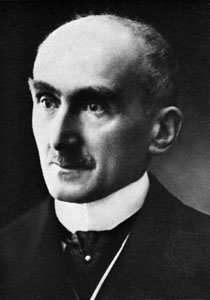To Mary Potter Bush
Via Santo Stefano Rotondo, 6
Rome. June 7, 1946
Your last large box with tea and coffee and other welcome things has arrived safely: I am sorry if others have been lost, but as you say in this democratic age we mustn’t grudge a certain toll taken illegally by the poor people through whose hands our luxuries pass. Happiness ought to be more differentiated, so that each class might have its own without envying the others. When we are unhappy because we can’t do as richer people do, it is often through a double illusion: we should not be happy if we could imitate them, but we might be happy if we set our hearts on something else. There might be less dissatisfaction in the world if there were more personal independence and self-knowledge. Sameness is incompatible with liberty.
The reviews I have seen of my new book are benevolent, but I see that I embarrass the critics, and they all talk more about me than about my book. Ideas are now conceived to be parts of the person who has them and not alleged descriptions or knowledge of anything impersonal. And this just when “things are in the saddle and ride mankind”. However, there seem to be signs of revolt against uniformity and dispersion of mind.
Harvard is reforming its curriculum, and a young American here has just given me a book–he calls it a “work”–still only typewritten in which he proposes a “Guardian State” with a hierarchy of official classes, all based, however, on selection according to ability and disposition from the mass of public school children. At the same time there is what you say in your last kind letter about the disappearance of servants. My niece Mrs. Rosamond Sturgis (divorced from my late nephew George) tells me that she too does her housework and likes it, except that it takes up time that she would like to give to other things. She has three sons but no daughters. If she had two or three daughters still unmarried perhaps the matter would be more easily arranged, since the young are more lively and merry and would despatch the housework in a giffy. I myself shouldn’t mind doing my room, just as I like mending my clothes. Such things don’t interfere with head work but freshen it up. My solution for this problem would be to establish a sort of communism (with financial equality) in material things, but with enough leisure for other different specific societies to be superposed freely on the common background. Perhaps America may lead the way in this direction, if the uniform business order doesn’t absorb and standardize the spirit too much. What you say about the resources of New York now seems to point in this direction. If the climate were gentler I might sit happy on some of those public benches in the parks and listen to the public concerts. I used to do so in Rome: but now the population has increased, the parks are crowded, and the benches often stripped of the wooden bars on which you were expecting to sit. People come at night and carry them off for fuel.
Thank you for everything. What you say about my book is particularly interesting. Reading about Indian philosophy, and reading the Latin poets has taught me to read the Gospels in the light of what Bergson called la fonction fabulatrice: but this name must not be taken censoriously, but sympathetically.
From The Letters of George Santayana: Book Seven, 1941-1947. Cambridge, MA: The MIT Press, 2006.
Location of manuscript: Butler Library, Columbia University, New York NY

